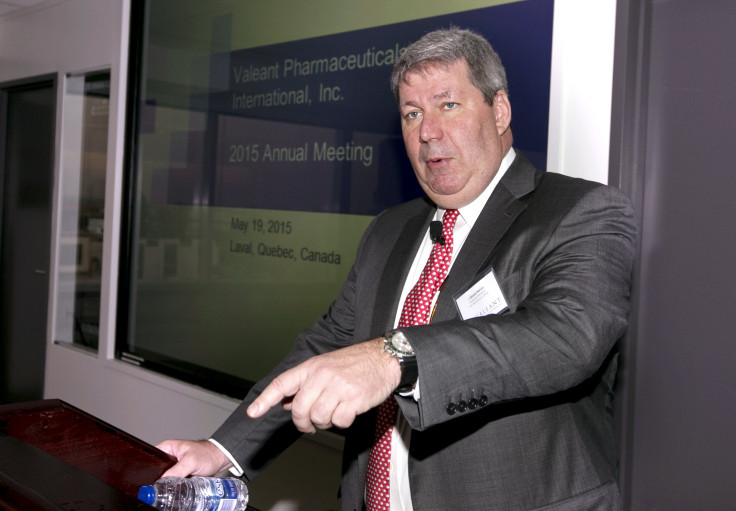Valeant Pharmaceuticals International (VRX) Outgoing CEO Michael Pearson To Renounce Drug Price-Hiking Model He Pioneered

One of the most controversial trends in the pharmaceutical industry is set to suffer a high-profile rebuke from one of its earliest and most exuberant proponents.
Buying up niche medicines and quickly jacking up their price was “too aggressive” a strategy, Michael Pearson, the soon-to-be-former chief executive of Valeant Pharmaceuticals International, is expected to tell lawkmakers later Wednesday.
The comments, acquired by the Associated Press, mark an about-face for the outgoing executive, who steadfastly defended Valeant’s acquisition-heavy approach last year as federal and state regulators launched investigations into the company and reports multiplied over questionable sales practices at Valeant’s specialty pharmaceutical partners.
“Let me state plainly that it was a mistake to pursue — and in hindsight, I regret pursuing — transactions where a central premise was a planned increase in the prices of the medicines,” Pearson says in the testimony, according to the AP.
Those transactions began drawing heightened attention last year, after Valeant acquired patents for drugs like Glumetza, a diabetes pill, which the company subsequently marked up more than 800 percent. The strategy meant big profits for Valeant and helped make it a darling among hedge funds. But it also drew criticism from lawmakers and politicians like Hillary Clinton, who has blasted Valeant from the campaign trail.
A subsequent investigation by the House of Representatives revealed that price hikes, not organic growth, had been a key driver to Valeant’s profits, despite what Pearson had previously indicated to investors.
The comments Pearson is set to make before the Senate Committee on Aging represent a humbling for the executive, who will be replaced by outgoing Perrigo CEO Joseph Papa in early May. “In retrospect, we relied too heavily on the industry practice of increasing the price of brand name drugs in the months before generic entry,” Pearson’s statement reads.
But it’s not the first time Pearson has indicated that Valeant’s strategy is shifting. In March, Pearson told investors that the company was looking to firm up its existing business lines, which include eye care line Bausch & Lomb and depression drug Wellbutrin. “We will not be looking at acquisitions that involve sort of mispriced assets that will not be part of our agenda,” Pearson said at the time.
Valeant’s stock is down 82 percent from a year ago, following an unrelenting series of accounting scandals and revelations of new investigations. The company is currently trying to put together a revised quarterly earnings report after months of delays to avoid defaulting with bondholders.
© Copyright IBTimes 2025. All rights reserved.






















